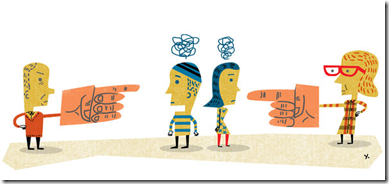Meals on Wheels: My grandparents (and science) understand the importance for this program
/My grandparents - my mémère and pépère - delivered Meals on Wheels to senior citizens for years. I once asked Pépère to explain Meals on Wheels to me. He said that he was visiting seniors. Saying hello, bringing them food, and making sure they didn't need anything else.
"It's hard to get old," he told me. He said that the food was important to these people, but the smile and the hello was just as important.
As you may have heard, Donald Trump's proposed budget cuts funding to Meals on Wheels, which feeds 2.4 millions seniors every year, including 500,000 veterans.
Here's the good news:
- Meals on Wheels receives most of its funding from corporate and private sources, so even if these cuts were to happen, Meals on Wheels would continue to exist.
- Presidential budgets are wish lists that are often "dead on arrival" to Capitol Hill. Given the scope of the proposed cuts, the opposition within his own party to many cuts, and his recent string of losses, this budget is especially "dead on arrival."
- While Donald Trump may see this program as a waste of money, it is unlikely that Congress will cut its funding given the infinitesimal percentage of the budget that it requires.
The most offensive aspect of Trump's proposed cut to Meals on Wheels is the accusation that the program is "just not showing any results.”
If you want to argue that the money could be better spent, fine.
If you want to argue that more seniors could be helped if the money was shifted to a different program, great.
But lying about the ineffectiveness of a program that by all accounts makes an enormous difference in the lives of seniors is a disgusting and cowardly act.
Research reported in the New York Times includes:
“In 2014, researchers explored the evidence on whether home-delivered meal programs improved the diet and nutrition of older Americans. They found eight studies, two of which were randomized controlled trials. Six of the eight showed that programs like Meals on Wheels improve the quality of people’s diet, increase their nutrient intake, and reduce their food insecurity and nutritional risk. They also noted that the programs increased chances for human contact and improved quality of life.
It’s important to recognize that the program’s benefits are not merely nutritional. A 2016 study showed that participants in the Meals on Wheels program had lower loneliness scores. A 2013 study showed that spending on services like Meals on Wheels was associated with less reliance on institutionalized care, because more people could live independently at home. They may even have fewer falls at home and less worry about being able to remain there.
It’s important to recognize that the program’s benefits are not merely nutritional. A 2016 study showed that participants in the Meals on Wheels program had lower loneliness scores. A 2013 study showed that spending on services like Meals on Wheels was associated with less reliance on institutionalized care, because more people could live independently at home. They may even have fewer falls at home and less worry about being able to remain there.
Researchers conducted economic analyses in 2013 and showed that if all states had increased the number of older Americans who had received Meals on Wheels by just 1 percent, the states would have saved Medicaid more than $109 million. Most of those savings would have come from reductions in the need for nursing home care.”
If my Pépère were alive today, he probably could've told Trump most of this without needing to spend a dime on research. He volunteered his time to help these senior citizens in need of help. He understood the importance of the program. He knew the people whose lives were substantially improved by this program.
As a person who has experienced food insecurity and hunger in my life, you can't underestimate the value of a dependable meal every day.
Donald Trump grew up in a wealthy home and was given a multi-million dollar handout at the start of his career. He hasn't been hungry a day in his life.
In the absence of my grandfather's advice, Donald Trump could follow this simple rule:
When you can afford to spend more than three million dollars of taxpayer money nearly every weekend in order to play golf in Florida (and then lie about playing golf despite photographic evidence proving otherwise), you can afford to continue to feed impoverished senior citizens and veterans who depend on this program for their daily nutrition.



